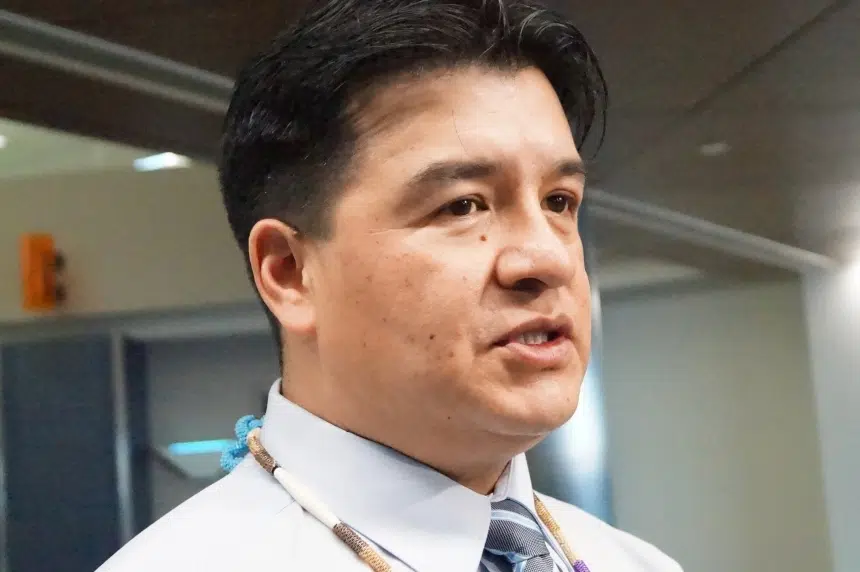A landmark ruling by the Canadian Human Rights Tribunal gives aboriginal and Metis Nations more ‘teeth’ when it comes to lobbying the federal government for increased investment and opportunity.
“We can’t turn a blind eye and we’re not going to. We owe it to our children across this country, an investment in youth and students will only enhance our ability to be positive, contributing factors to our communities,” Federation of Saskatchewan Indian Nations (FSIN) Chief Bobby Cameron told reporters Wednesday.
“(This ruling) gives us more leverage to get these commitments fulfilled because it is one of our inherent treaty rights.”
On Tuesday the tribunal ruled that the federal government has been critically underfunding child welfare programs on reserves compared to the rest of Canada, to the tune of about $200 million.
Cameron paralleled the tribunal ruling to the recent tragedy in the northern Saskatchewan town of La Loche stating that child welfare, housing, poverty and mental health are all connected.
Cameron said he’s optimistic the federal budget in April will address funding shortfalls First Nations have been dealing with for decades.
“It’s going to be very key in terms of how much money will be allocated for education, housing and infrastructure and equally important, the different programs and services that have to be offered to youth and students,” Cameron said shortly before boarding a plane to Ottawa for meetings on how to move forward on recommendations from the tribunal and the Truth and Reconciliation Commission.
Court Challenges Program of Canada (CCPC) director Ken Norman said he has never seen such time and dedication to a case.
“I think it’s a story that is riveting if you consider what a rare thing it is for so many people to have for so many years given their time. Some five lawyers literally gave millions of dollars of their fees to this case,” he said, adding the ruling shows the need for the restoration of the Count Challenges program.
In 2006, the federal government stopped CCPC from taking new cases effectively shutting down the arm’s-length, tax-funded office that vets and partially funds cases involving substantive violations of language or equality rights.
Two years later, it partially restored the program’s ability to take on cases involving language rights.
CCPC supported the First Nations Child and Family Caring Society’s complaint to the tribunal.
Norman said the remarkable thing about the tribunal’s ruling were the future reforms and retroactive damages.
“The federal government’s got to figure out a way to give those kids the same kind of services that other kids are entitled to, based on their need,” he said.
The tribunal will reconvene a hearing in the next three weeks to examine individual cases of children whose needs were not met, and the damages they should be awarded as a result.
If the federal government doesn’t address these concerns and recommendations, Cameron said he will continue to fight for what First Nations in Canada deserve.
“We’ll continue to advocate and lobby for our First Nations and Metis people to finally get what’s rightfully owed to our people,” he said. “It’s an investment right, it’s an investment for the future of Saskatchewan our First Nations people and ultimately the economy of Saskatchewan and Canada.”
Cameron also called on schools across the province to lower flags to half mast on Friday, as well as to join together and hold a moment of silence and prayer for the victims of the La Loche school shooting and the families affected.
“We’re asking everyone across this province that on Friday morning 9 a.m., we take a moment of silence and a moment of prayers for the people of the north,” Cameron said.
The cities of Regina and Prince Albert plan to hold their own vigils Wednesday night to remember those lives lost last week.











